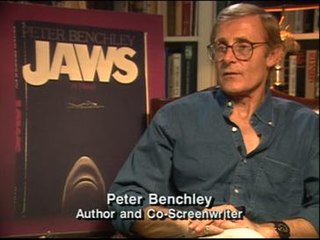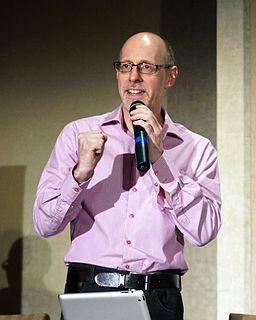A Quote by Peter Benchley
The ocean is the only alien and potentially hostile environment on the planet into which we tend to venture without thinking about the animals that live there, how they behave, how they support themselves, and how they perceive us. I know of no one who would set off into the jungles of Malaysia armed only with a bathing suit, a tube of suntan cream, and a book, and yet that's precisely how we approach the oceans.
Related Quotes
What the meat industry figured out is that you don't need healthy animals to make a profit. Sick animals are more profitable... Factory farms calculate how close to death they can keep animals without killing them. That's the business model. How quickly they can be made to grow, how tightly they can be packed, how much or how little can they eat, how sick they can get without dying...We live in a world in which it's conventional to treat an animal like a block of wood.
I am always struck by how difficult it is for people to see how much cruelty they are bringing not only upon animals but upon themselves and their loved ones and other people, how much we are screwing up the planet, how much we are hurting our own health, how hard it is to change all that, how eager people are to make a buck at everybody else's expense - all those things are discouraging.
If only mortals would learn how great it is to possess divine grace, how beautiful, how noble, how precious. How many riches it hides within itself, how many joys and delights! No one would complain about his cross or about troubles that may happen to him, if he would come to know the scales on which they are weighed when they are distributed to men.
We're starting to realize that magicians have a lot of implicit know-ledge about how we perceive the world around us because they have to deceive us in terms of controlling attention, exploiting the assumptions we make when we do and don't notice a change in our environment. There is an enormous amount of really detailed instruction on how to perform magic. People are always blown away by how detailed a description you'll have.
I kept thinking about how ironic it is how people who live in places where there is diversity tend to love it - and the people that don't live in particularly diverse places tend to be the ones attacking it. In a way, that's similar to music, which is essentially the art of bringing things together.


































